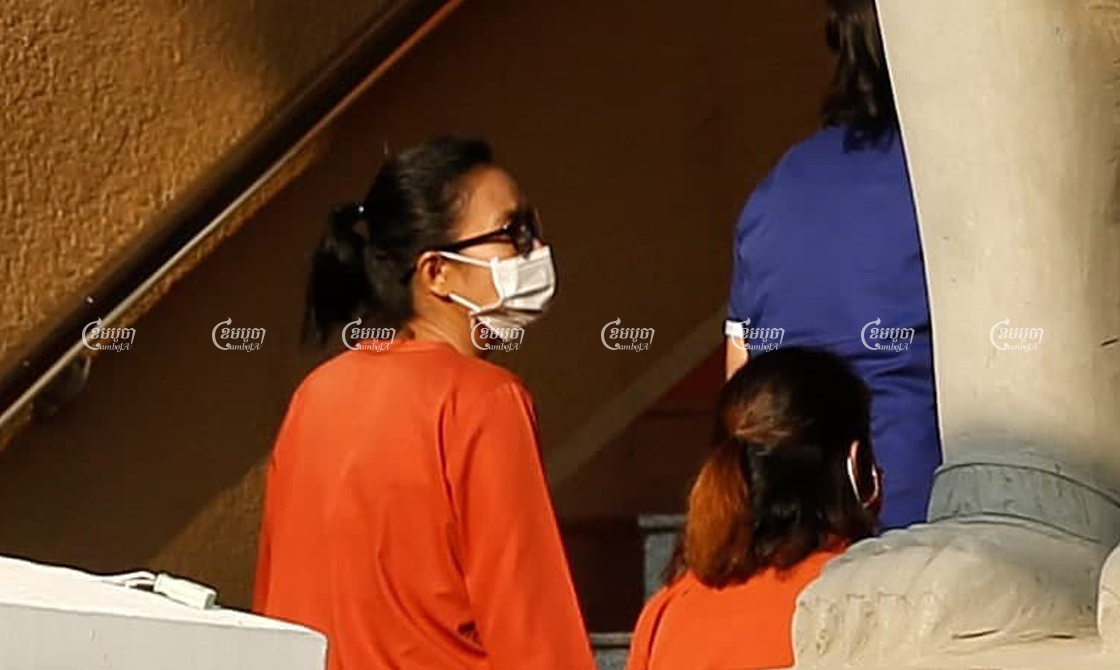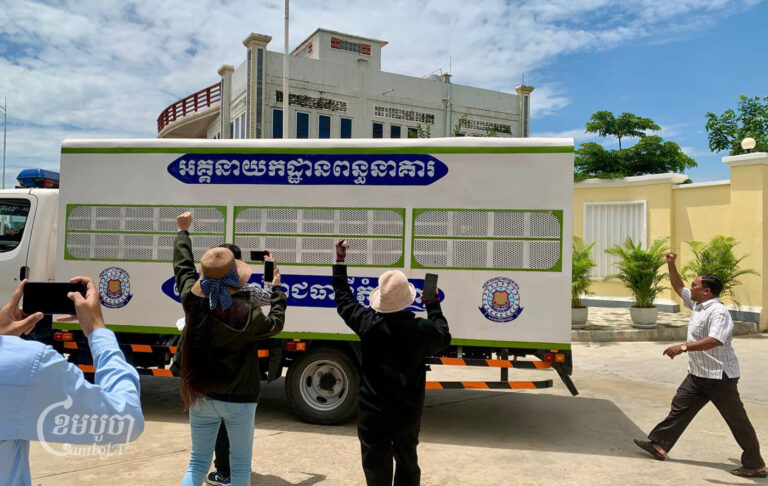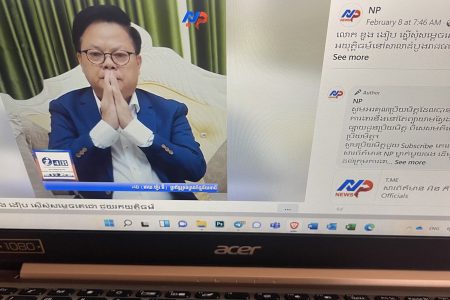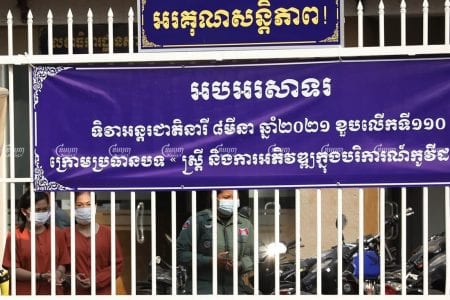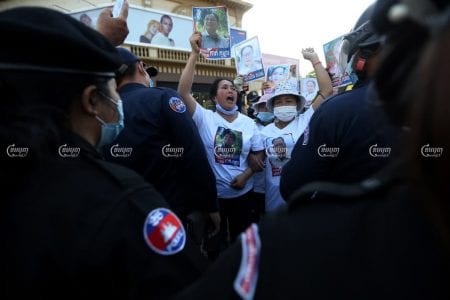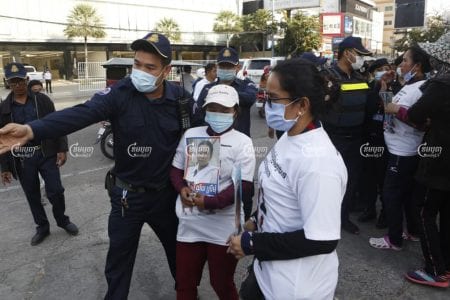The Phnom Penh Municipal Court continued the questioning of prominent unionist Rong Chhun and two co-defendants, with the cross-examination centering around their private messages on social media messaging applications.
The court has charged Rong Chhun with incitement for comments he made about the border between Cambodia and Vietnam last July. Two youth activists, Sar Kanika and Ton Nimol, are also charged with incitement but were arrested during protests calling for the release of jailed Chhun.
During the three-hour-hearing, Kanika and Nimol said they had not accompanied Chhun to the Cambodian border with Vietnam last year. Chhun released a statement after a visit to Tbong Khmum province which said that villagers had lost land after the border post was placed inside Cambodian territory.
Kanika was also questioned about an organization she formed, the Worker Informal Economic for Society Association, and its purpose. She said that she had not registered the group and wanted to use it as a platform to highlight livelihood issues faced by Cambodians.
“I want to create an association to help and to improve people’s livelihood, not to provoke or disturb social security,” she said.
She was not part of the border trip, Kanika said, and had only met Chhun on a few occasions to discuss her new organization. She had seen Chhun’s statement online but did not have anything to do with its drafting.
Nimol said he was a supporter of Chhun’s work with workers and had seen the border statement on Kanika’s Facebook account.
“I knew Rong Chhun but I have never talked to him about the border issue,” he said.
The court clerk then read out a police report about data extracted from Kanika’s phone, which was seized by officials. The police reported that there was no data about the border issue on the phone.
“Police made a conclusion that there were no data [voice] recordings that Sar Kanika had deleted before knowing polices will be arrested,” reads the report.
Sam Sokong, the activists’ defence lawyer, said there was no evidence to incriminate Kanika and Nimol because they never joined Chhun or investigated border issue with him.
“After questioning, we know that they know Rong Chhun because they liked him because he has been helping society a lot,” he said.
Sokong said that the next hearing should involve testimony from police officials who compiled the case file, officials from the border affairs committee, and other evidence in the case file.
Am Sam Ath, deputy director at rights group Licadho, who monitored the hearing, said the evidence clearly showed that the case was based on the defendants’ private conversations, and accessing them was a violation of the trio’s rights.
“If we look at their answer there are not involved with the crime and the accusations against them are based on a violation of their privacy rights,” he said.
The trial hearing will resume on February 17.


